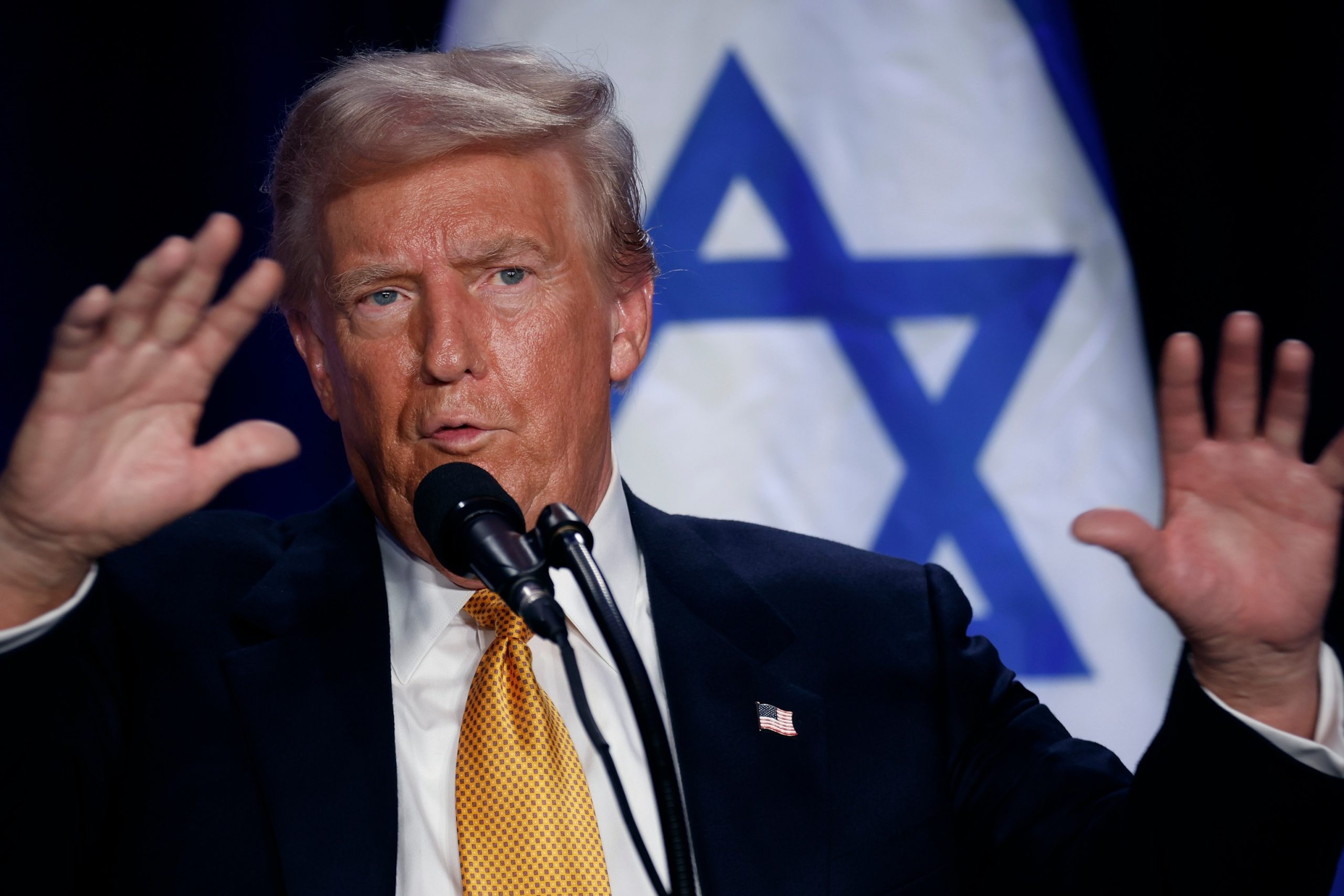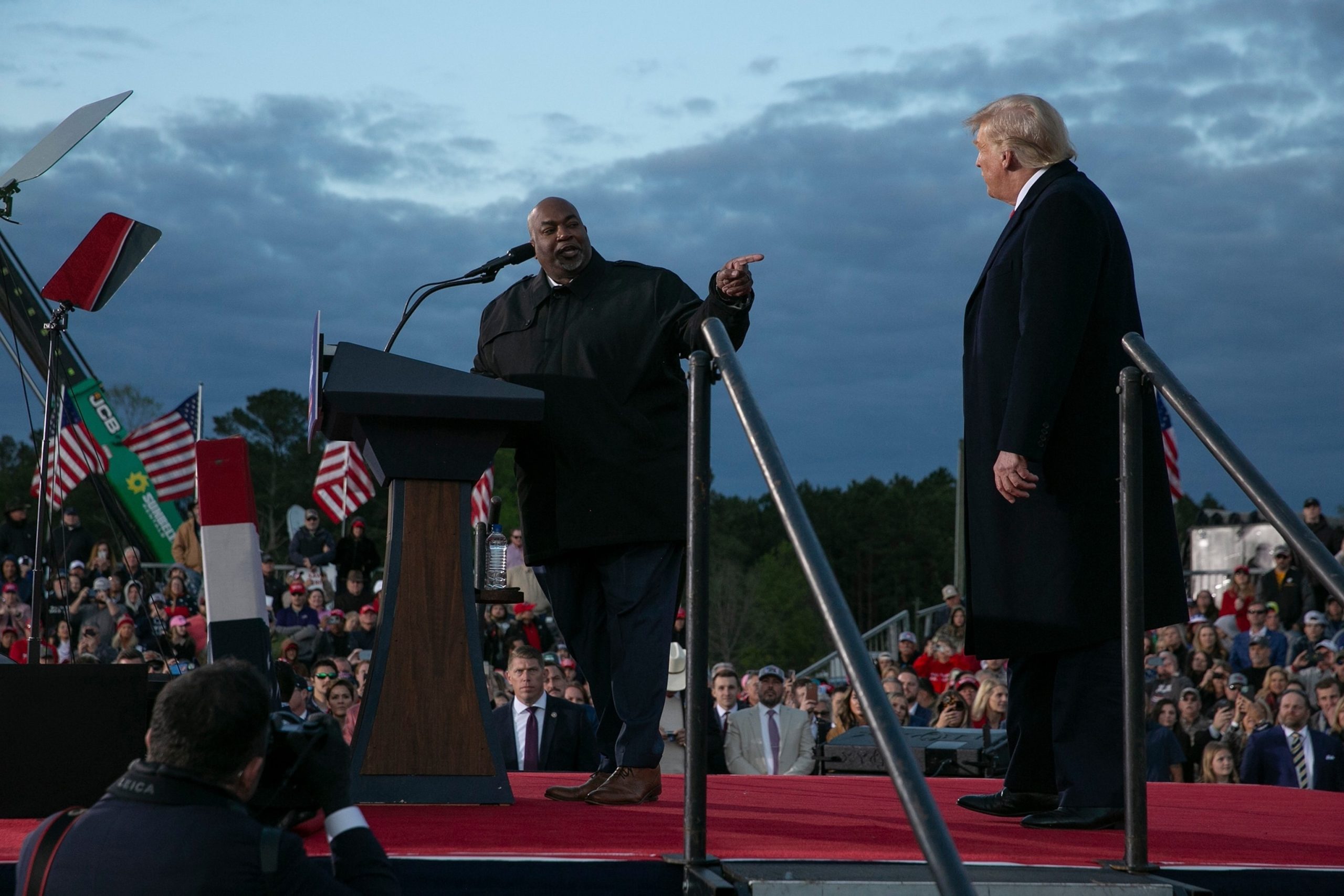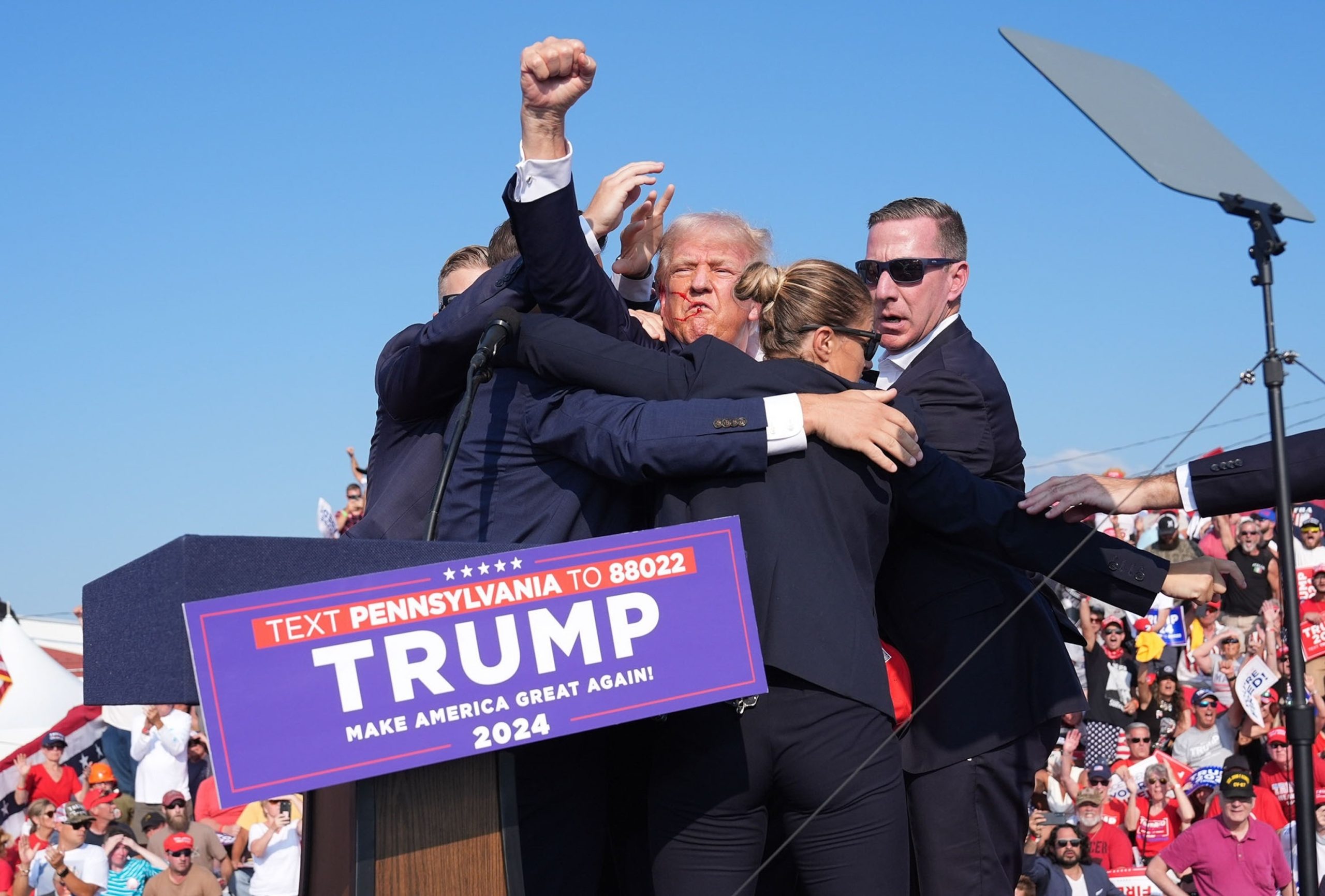Vice President Kamala Harris’ campaign and Jewish advocacy groups on Friday forcefully criticized what they called former President Donald Trump‘s “dangerous” and “antisemitic” comments saying Jewish voters would be to blame if he lost the presidential election.
“I’ll put it to you very simply and as gently as I can: I wasn’t treated properly by the voters who happen to be Jewish,” Trump said at an event Thursday night in Washington that was meant to highlight antisemitism. “I don’t know. Do they know what the hell is happening if I don’t win this election? And the Jewish people would really have a lot to do with that if that happens, because at 40% that means 60% of the people are voting for the enemy.”
The backlash was fierce.
“Donald Trump is resorting to the oldest antisemitic tropes in the book because he’s weak and can’t stand the fact that the majority of America is going to reject him in November. But we know that words like these can have dangerous consequences,” Harris campaign national security spokesperson Morgan Finkelstein said in a statement. “As Trump has proven, including over the past few weeks with his lies about Springfield, Ohio, he will cling to fearmongering and intimidation, no matter the cost.”
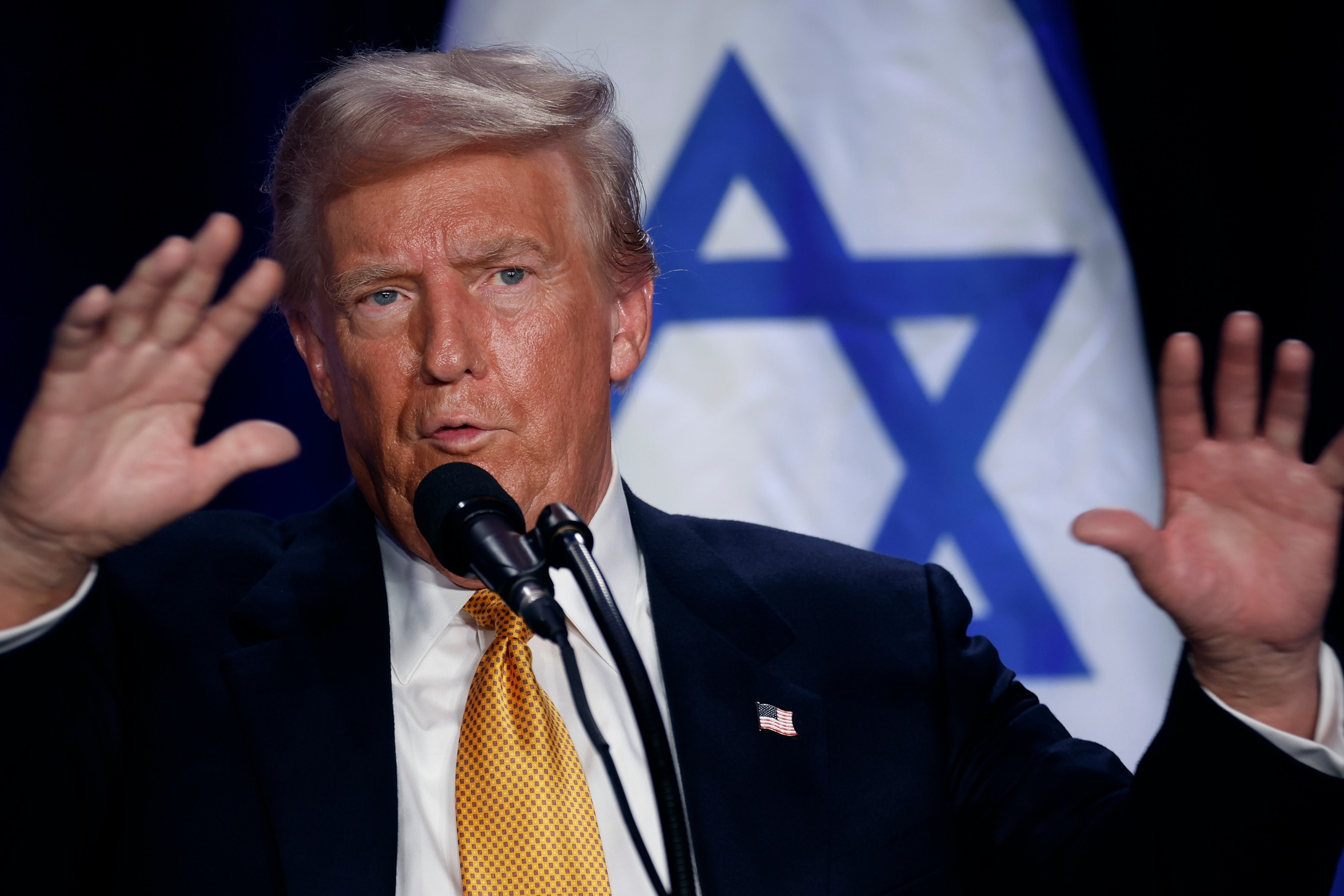
Republican presidential nominee, former U.S. President Donald Trump, speaks before prominent Jewish donors at an event titled “Fighting Anti-Semitism in America” at the Hyatt Regency Capitol Hill on September 19, 2024, in Washington, D.C. (Photo by Chip Somodevilla/Getty Images)
Chip Somodevilla/Getty Images
Trump and his running mate, Sen. JD Vance of Ohio, have in recent days pushed the baseless claim that Haitian migrants in Springfield, most of whom are legally there, of stealing and eating neighbors’ pets — an accusation roundly refuted by local officials.
“When Donald Trump loses this election, it will be because Americans from all faiths, ethnicities, and backgrounds came together to turn the page on the divisiveness he demonstrates every day,” Finkelstein added.
Harris’ husband, second gentleman Doug Emhoff, who is Jewish himself, wrote on X Friday that Jewish Americans would not be “intimidated” by Trump’s attacks. “Last night, Donald Trump once again fanned the flames of antisemitism by trafficking in tropes blaming and scapegoating Jews. He even did it at an event purporting to fight antisemitism, no less,” Emhoff wrote. “This is dangerous and must be condemned. We will not be intimidated and will continue to live openly, proudly, and without fear as Jews.”
Non-partisan Jewish advocacy organizations also vocalized their strong opposition to Trump’s comment.
“Whoever a majority of the Jewish community votes for, Jews — roughly 2 percent of the U.S. population — cannot and should not be blamed for the outcome of the election,” the American Jewish Committee wrote in a statement. “Setting up anyone to say, ‘we lost because of the Jews’ is outrageous and dangerous. Thousands of years of history have shown that scapegoating Jews can lead to antisemitic hate and violence.”
Some Jewish voters will vote for Harris, and some will vote for Trump, the AJC said, adding that “None of us, by supporting the candidate we choose, is ‘voting for the enemy.'”
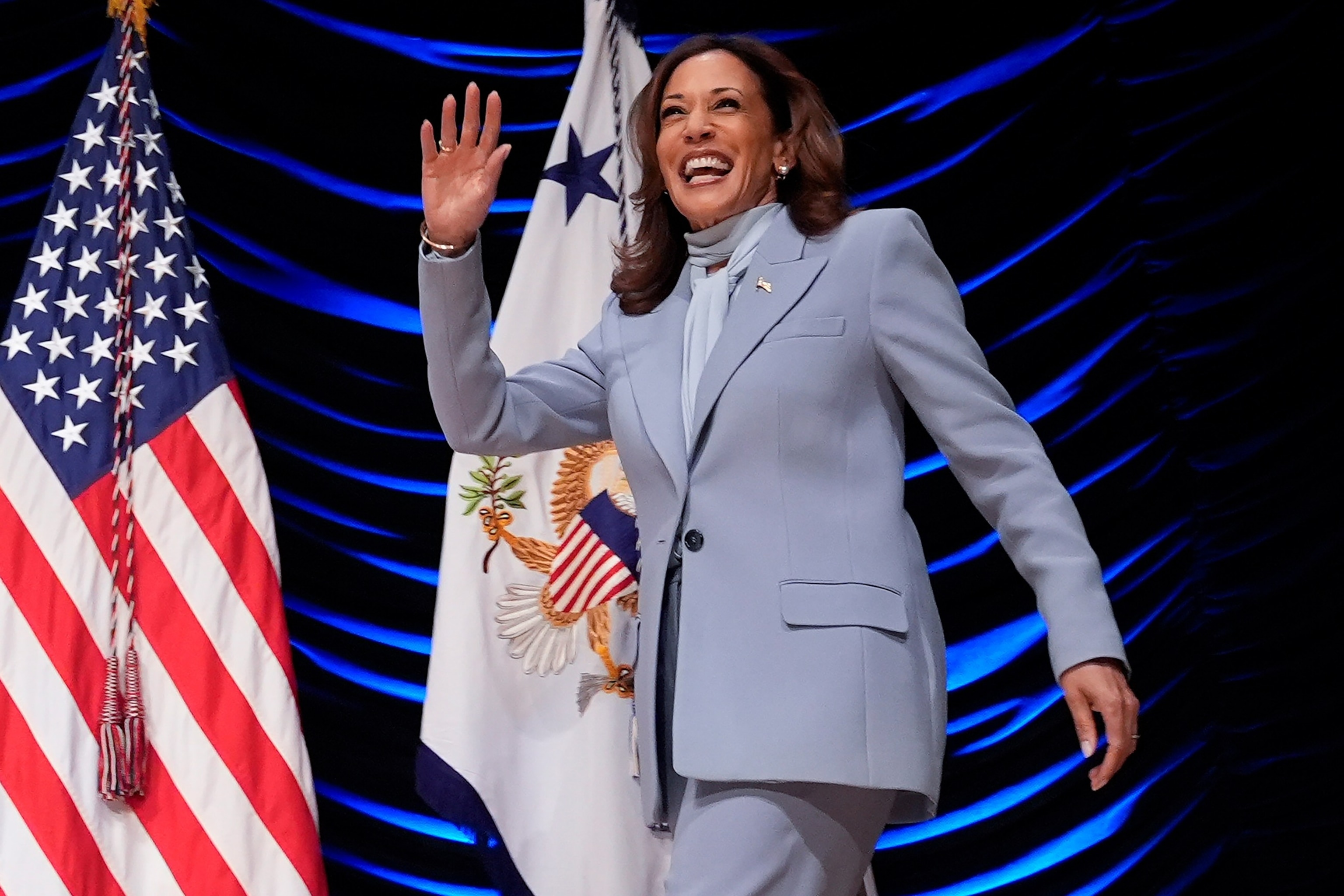
Democratic presidential nominee Vice President Kamala Harris arrives to speak at the Congressional Hispanic Caucus Institute (CHCI) leadership conference, Sept. 18, 2024, in Washington.
Jacquelyn Martin/AP
Anti-Defamation League CEO Jonathan Greenblat wrote on social media that Trump’s comments contradicted the message of the antisemitic event at which he was speaking and can make it worse for Jewish Americans.
“Preemptively blaming American Jews for your potential election loss does zero to help American Jews. It increases their sense of alienation in a moment of vulnerability when right-wing extremists and left-wing antizionists continually demonize and slander Jews,” Greenblat wrote “Let’s be clear, this speech likely will spark more hostility and further inflame an already bad situation.”
Amy Spitalnick, who leads the progressive-leaning Jewish Council for Public Affairs, encouraged more people to join growing chorus slamming Trump’s comment.
“Last night, Trump preemptively blamed the Jews for his possible electoral loss, after spending months calling Jews who don’t support him ‘crazy’ & ‘disloyal.’ Speaking out against this isn’t about partisan politics — it’s about fundamental Jewish safety,” Spitalnick wrote. “We need everyone to do so.”
Trump did receive backing from some on the political right. The Republican Jewish Coalition, a major Jewish political group that has endorsed Trump, praised Trump for his remarks on combatting antisemitism.
Matt Brooks, the CEO of the organization, told ABC News in a phone interview that he thought the comments about Jewish voters and the election were about motivating Jewish voters, and that Democratic claims otherwise are a deflection.
“I think what it was is the president trying to motivate the Jewish community,” Brooks said, adding that Trump “realizes what’s at stake” for American Jews, who feel unsafe in America due to a rise in antisemitism. (Brooks pointed to intimidation faced by Jewish students on college campuses as one example.)
“This is an absolute distraction, to deflect that [Trump] made many significant and important contributions to the Jewish community,” Brooks said.
He added that Trump was also indicating how close of an election it may be in battleground states, where given the likely slim margin, “if the Jewish vote doesn’t move in his favor, it may cost him the election.”
President Trump recently sparked controversy and criticism from both the Harris campaign and Jewish groups after he preemptively blamed Jewish voters for a potential loss in the upcoming election. The comments made by Trump have been seen as divisive and offensive, further highlighting the growing tensions surrounding issues of race, religion, and politics in America.
The Harris campaign was quick to condemn Trump’s remarks, with spokesperson Sarah Simmons stating, “It is deeply troubling that President Trump would seek to scapegoat an entire community for his own potential electoral defeat. This kind of divisive rhetoric has no place in our political discourse and only serves to further polarize our country.”
Jewish groups also expressed outrage at Trump’s comments, with many pointing out the long history of anti-Semitic tropes and stereotypes that have been used to vilify and marginalize Jewish communities. Rabbi David Cohen of the Anti-Defamation League stated, “It is unacceptable for any political leader to single out a specific group of people in this way. Such rhetoric only serves to fuel hatred and division, and has no place in our democracy.”
Trump’s remarks come at a time when tensions are already high in the lead-up to the election, with issues of race, religion, and identity playing a central role in the national conversation. The president’s comments have been seen as an attempt to shift blame and deflect attention from his own shortcomings, rather than engaging in a meaningful dialogue about the issues that matter most to voters.
Critics have also pointed out the irony of Trump’s comments, given his own history of making inflammatory and divisive statements about minority groups. From his remarks about Mexican immigrants to his refusal to condemn white supremacists, Trump has consistently stoked racial and ethnic tensions for political gain.
As the election draws near, it is more important than ever for political leaders to engage in respectful and constructive dialogue, rather than resorting to divisive and inflammatory rhetoric. The Harris campaign and Jewish groups have made it clear that they will not stand for this kind of behavior, and are calling on all Americans to reject hate and intolerance in all its forms.
In the end, Trump’s preemptive blame of Jewish voters serves as a stark reminder of the importance of standing up against bigotry and discrimination in all its forms. It is up to all of us to reject hate and division, and work towards a more inclusive and equitable society for all.
